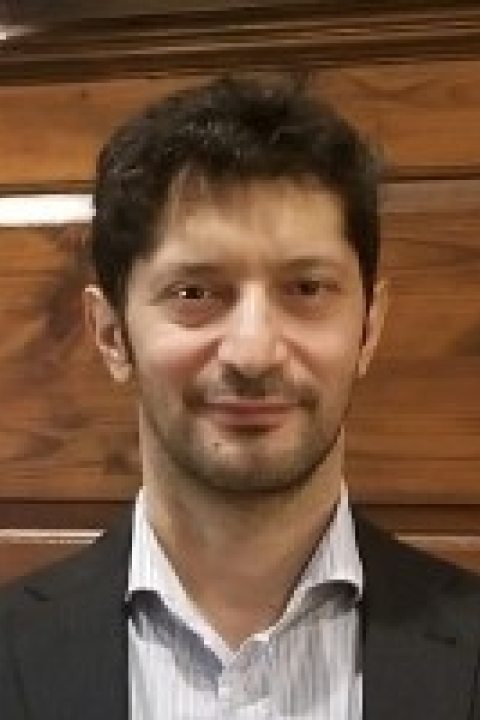
Associate Professor
Contact Information
304D Poucher Hall
315.312.3292
[email protected]
Office hours
Tuesdays from 11:45 to 12:30 pm & from 2:15 pm to 2:50 pm or by Appointment
Ulas Kaplan is a developmental scientist, exploring moral motivation and psychological well-being from the perspectives of complex dynamic systems and self-determination theory. His research program in moral psychology brings together cognitive and emotional dynamics in moral development. In his other research program, Dr. Kaplan examines short-term developments in psychological well-being in connection with the intentional use of imagination (mental imagery). In addition to research articles in psychological and developmental journals, Dr. Kaplan published two books in his native language (Turkish) on the topics of violence and education (2016) and theories of psychology and human development (2022).
Publications
- Kaplan, U. (2023). To solve difficult problems, think beyond opposites: The case of higher education. Creating Common Ground. https://www.creatingcommonground.org/to-solve-difficult-problems-think-beyond-opposites-the-case-of-higher-education/
- Kaplan, U. (2022). Psikoloji kuramları ve insan gelişimi. Anı Yayıncılık.
- Fang, W. T., Kaplan, U., Chiang, Y. T., & Cheng, C. T. (2020). Is religiosity related to environmentally-protective behaviors among Taiwanese Christians? A structural equation modeling study. Sustainability, 12(21), 8999.
- Kaplan, U. (2019). Dynamic developmental complexity of moral motivation for adolescents and young adults. In S. E. Kunnen, N. M. P. de Ruiter, M. A. E. van der Gaag, & B. F. Jeronimus (Eds.), Psychosocial Development in Adolescence: Insights from the Dynamic Systems Approach (pp. 172–192). Routledge.
- Chiang, Y. T., Fang, W. T., Kaplan, U., & Ng, E. (2019). Locus of control: The mediation effect between emotional stability and pro-environmental behavior. Sustainability, 11(3), 820.
- Kaplan, U. (2017). Identity development and aging. In The Sage Encyclopedia of Psychology and Gender (pp. 915–917). Sage.
- Kaplan, U. (2017). Kohlberg’s stages of moral development. In The Sage Encyclopedia of Psychology and Gender (pp. 1012-1016). Sage.
- Kaplan, U. (2017). Moral motivation as a dynamic developmental process: Toward an integrative synthesis. Journal for the Theory of Social Behaviour, 47(2), 195–221.
- Kaplan, U. (2016). Şiddeti yenmek, eğitimle gelişmek. Varlık Yayınları.
- Plass, J., & Kaplan, U. (2016). Emotional design in digital media for learning. In S. Tettegah & M. Gartmeier (Eds.), Emotions, Technology, Design and Learning (pp. 131–162). Elsevier.
- Kaplan, U., Epstein, G. N., & Sullivan Smith, A. (2014). Microdevelopment of daily well-being through mental imagery practice. Imagination, Cognition and Personality, 34(1), 73–96.
- Kaplan, U., & Tivnan, T. (2014a). Moral motivation based on multiple developmental structures: An exploration of cognitive and emotional dynamics. The Journal of Genetic Psychology. Research and Theory on Human Development, 175(3), 181–201.
- Kaplan, U., & Tivnan, T. (2014b). Moral motivational pluralism: Moral judgment as a function of the dynamic assembly of multiple developmental structures. Journal of Adult Development, 21(4), 193–206.
- Kaplan, U., & Tivnan, T. (2014c). Multiplicity of emotions in moral judgment and motivation. Ethics & Behavior, 24(6), 421–443.
- Kaplan, U., Crocket, C. E., & Tivnan, T. (2014). Moral motivation of college students through multiple developmental stages. Evidence of intrapersonal variability in a complex dynamic system. Motivation and Emotion, 38(3), 336–352.
- Kaplan, U. (2014). Moral judgment is not based on a dichotomy between emotion and cognition: Commentary on Bazerman et al. (2011). Emotion Review, 6(1), 86.
- Kaplan, U., & Epstein, G. N. (2011). Psychophysiological coherence as a function of mental imagery practice. Imagination, Cognition and Personality, 31(4), 297–312.
- Harris, C. M. & Kaplan, U. (2011). Comprehensive hybrid course development. In D. S. Dunn, J. C. Wilson, J. Freeman, & J. R. Stowell (Eds.), Getting connected: Best practices for technology-enhanced teaching and learning in higher education. Oxford University Press.
- Kaplan, U. (2007). Moral motivation and its developmental complexity. Adult Developments Bulletin, 11(1), 10–11.
- Chirkov, V., Ryan R. M., Kim, Y., & Kaplan, U. (2003). Differentiating autonomy from individualism and independence: A self-determination theory perspective on internalization of cultural orientations, gender, and well-being. Journal of Personality and Social Psychology, 84(1), 97–110.
- Fischer, K., & Kaplan U. (2003a). Piaget, Jean. In L. Nadel (Ed.), Encyclopedia of Cognitive Science (Volume 3), pp. 679–682. London: Macmillan Reference Limited.
- Fischer, K., & Kaplan U. (2003b). Piagetian theory. Development of conceptual structure. In L. Nadel (Ed.), Encyclopedia of Cognitive Science (Volume 3), pp. 683–687. Macmillan Reference Limited.
Education
- Ed.D. in Human Development and Psychology, Harvard University
- Ed.M. in Mind, Brain and Education, Harvard University
- M.A. in Social Psychology, Boğaziçi University, Turkey
- B.Sc. in Industrial Engineering, Istanbul Technical University, Turkey
Post-Doctoral Training
- CUNY Graduate Center & NYU Steinhard School of Culture, Education and Human Development
- University of Groningen (Netherlands), Department of Developmental Psychology